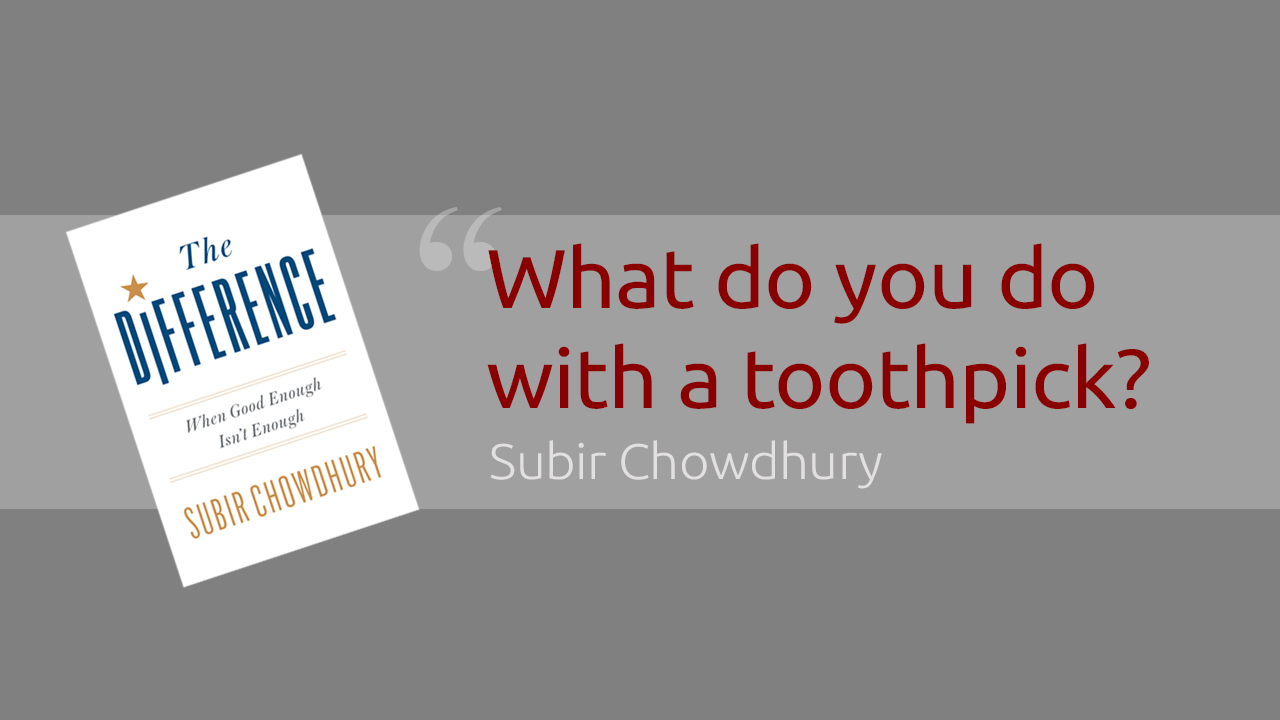Caring isn’t someone else’s issue—it’s your issue. It’s my issue. It’s your neighbor’s issue. It’s the CEO’s issue.
Quality & Me
Subir shares short stories about what people do to make a difference everywhere they go. We can make huge contributions to the way we function as a society by standing out as an example within our own community: at work, at our places of worship, among our colleagues, friends, and family. All it takes is the courage to step up and being straightforward, thoughtful, accountable, and resilient.
A few years ago, I met with a client at his offices in Michigan. It was a large organization, going through some turbulent times.
The organization wasn’t meeting its goals; things weren’t looking good.
Out of nowhere, my client asked me the following question:
“Subir, what do you do with a toothpick when you are done with it?”
I was stunned into silence. Where did this come from?
After a few seconds, I responded that, of course, I would throw it away.
“Exactly,” he responded.
This client then went on to tell me he had spotted a used toothpick on the floor that housed the C-suite offices of his organization.
To me, he seemed overwhelmed by a meaningless piece of garbage.
I asked him, “What’s the big deal? It’s a toothpick. Someone was just careless; it happens.”
That was exactly the point, he explained to me.
To him, that “meaningless piece of garbage” was indicative of a bigger problem: not caring.
To me, it was an “ah ha” moment.
His point was simple, yet profound: unless everyone cares, none of us care.
A caring mindset is paramount to success in work, at home, and in our communities and places of worship. If just one of us stops caring, it creates a domino effect: we all stop caring.
Think about the last time you picked up a piece of trash on the sidewalk, helped your neighbor without being asked, or thanked a co-worker for critical but necessary feedback. These are all small actions, but again, the sum is more powerful than the individual actions.
Caring has a snowball effect because little things add up.
Caring isn’t someone else’s issue—it’s your issue. It’s my issue. It’s your neighbor’s issue. It’s the CEO’s issue.
Caring starts with you: how many “toothpicks” have you picked up today?



















